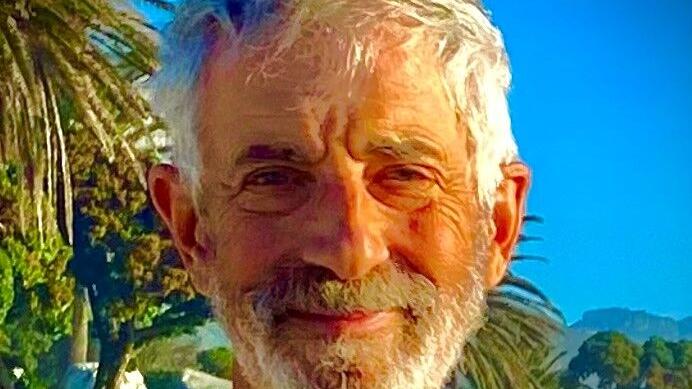What a pro-vaccine doc learned at an anti-vax conference

As I stepped into line to pick up my badge for the Children’s Health Defense (CHD) conference last weekend in Austin, Texas, a gregarious man approached holding two tall plastic tubes he said contained “clots” from Covid vaccinated bodies. After 36 years in the Air Force, he told me, he’d been pushed out for refusing the shot. Now in retirement, he calls funeral homes and surveys undertakers to document alleged vaccine harms.
Over the next two days, I heard versions of the same arc again and again: loss reframed as mission, grievance redirected into organizing.
I came to CHD out of curiosity — to hear how this movement wins people over, and why its message resonates so deeply. Over two days, I spoke with dozens of attendees between sessions and as a guest on the podcast “Why Should I Trust You?” I didn’t change any minds, nor did my convictions waver. But every conversation was honest and respectful.
What’s easy to miss from the outside is that this isn’t chaos — it’s community. And if public health wants to confront it, we need to understand it first.
From wellness influencers worried about Wi-Fi to crypto enthusiasts trading peer-to-peer coins, the CHD conference offered something for everyone in the room. The campaign against vaccines, though, took center stage. As a pro-vaccine clinician, I was an outlier — and even wondered, before I arrived, whether attending was the right call. By the time I left, I was certain it was, and that more of my public health colleagues should be there too.
Children’s Health Defense is less than a decade old, and this year’s conference was the first since the organization’s founder and former chairman Robert F. Kennedy Jr. took the helm as secretary at Health and Human Services. And while Kennedy goes to great lengths to convince a worried public that he isn’t an anti-vaxxer while simultaneously attacking vaccines, no such mealy-mouthed equivocation was on offer here.
In the opening panel, Del Bigtree, CEO of the anti-vaccination group Informed Consent Action Network and Kennedy’s spokesperson during his presidential bid, declared that “God is an anti-vaxxer.” Gavin de Becker, who provided security and financial support for Kennedy’s presidential campaign, proudly declared “Ich bin ein antivaxxer.” This conference captured a movement in ascendence, full of swagger and confidence, the wind fully at its back.
Still, celebration shared the stage with warnings that the movement must not get complacent. This duality was reflected in the conference’s title, “A Moment of Truth.” After touting what they see as historic wins, speakers warned that easing up would invite a swift rollback. Keep the “pedal to the metal,” Bigtree urged the sold-out crowd, before warning “if too many of us get careful, we will all be in prison.” Triumph and threat, often in the same breath.
The roller coaster rhetoric resonated with the nearly 1,000 people packed into the sprawling Marriott ballroom — largely older, mostly white, and very energized. These were the converted, frequently standing to applaud the speakers who railed against the power of insurance and pharmaceutical companies or the influence of the federal government.
At the conferences I typically attend, microphones are set up around the room or passed among attendees before panels end. But not at the CHD conference. Though speakers implored us to “question everything,” there was never a chance to ask questions. But there didn’t need to be. Everyone in the room seemed united in purpose.
Whatever brought attendees there — concerns about vaccine safety, “medical freedom,” or broader distrust — the glue was identity. Speaker after speaker described the purgatory they’d endured for speaking out, especially during Covid. They recounted the pushback accrued at first — the revocation of board certifications or the loss of close friends — before passing through a painful gauntlet of ostracization and profound loss. However, when emerging on the other side, they found themselves stronger, more steadfast, and in better company.
What the conference lacked in data, it made up for in delivery. Medical journals were cited more to impugn their trustworthiness than to support any factual claims being made. The talks were presented with humor, humility, and an incessant reminder of what is at stake.
Sometimes they deliberately pulled at our heartstrings. The whole room saw Peter Hildebrand tear up as a picture of his 8-year-old daughter, Daisy, filled the large screens — she was unvaccinated and died in April after contracting measles in the Texas outbreak. As more pictures of Daisy cycled through, he praised President Trump and Kennedy before thanking the Children’s Health Defense for showing up and supporting him, his family, and his community earlier this year.
Throughout the meeting, strategy wasn’t subtext; it was the script. I saw a movement unapologetically focused on reshaping the public health landscape through legislation. A recent Associated Press analysis documented more than 420 anti-science and “medical freedom” bills introduced in statehouses across the country. According to this weekend’s speakers, that’s only the beginning.
CHD’s mission lists four core pillars, starting with litigation. From the stage, Bigtree urged supporters to “bring truckloads of medical freedom bills to the capitol.” This legislative onslaught is supported by powerful allies: Sen. Rand Paul (R-Ky.), a physician who addressed the crowd by video, promised to help change the national vaccine schedule.
In addition to pushing to change policy, CHD has shown itself adept at using media to evangelize its message. Anyone following the organization’s social media quickly recognizes how well-organized it is, offering interviews on its platforms nearly every day. Polly Tommey, the CHD.TV program director and producer of the viral anti-vaccine video “Vaxxed,” reminded everyone in the room, “We have to become citizen journalists … we need to become the media.” This strategy is already paying dividends for CHD.
Tina Siemens, a panelist from the West Texas Mennonite community at the center of the measles outbreak earlier this year, railed against “mainstream media” for parachuting in to cover the outbreak without seeming to care about the community. She contrasted that approach with CHD, which helped connect children to providers offering unproven remedies — including budesonide and cod liver oil — instead of focusing only on the vaccine. She added, “CHD are our eyes and ears.”
Even as we watch the almost daily destruction of health institutions in the U.S., this weekend was a reminder that we mustn’t underestimate the threat a movement like CHD represents. For the scientists and officials they accuse of causing an endless litany of health harms, there were no olive branches on offer, only the threat of orange jumpsuits and prison time. There was no attempt to reach across the aisle; in fact, it was more about pushing toward a deeper, more enduring cleavage. Their passion was matched by their polish and persuasive presentation style.
While many in public health remain convinced that the best way to counter health misinformation is with data, this conference made clear that data alone won’t do it. For many in the room, the “facts” we roll out arrive pre-contested — manufactured by pharma, laundered through government, delivered by people they don’t trust.
Sen. Ron Johnson (R-Wis.) underscored this point in his video address, praising “powerful anecdotal evidence” as the key to “open people’s eyes.”
Science can — and must — continue to produce the evidence proving medicines work and vaccines are safe. But waving a table of numbers in someone’s face won’t change their mind.
What might is showing up — listening, engaging, and communicating better. The leaders applauded at CHD, including Kennedy, are seen as truth-tellers who stand up despite the costs. Public health needs to reclaim that same moral authority: to be seen as standing for truth with equal courage and clarity.
By the time I left Austin, I knew more of my colleagues should be in those rooms — not to agree, but to understand exactly what we’re up against. Sitting in these sessions isn’t just about awareness. It’s about understanding how belief takes shape, how trust is built, and how we might begin to earn it back.
If those of us in public health and medicine keep pretending those pushing to end vaccines are fringe conspiracy theorists running around in tinfoil hats, we risk underestimating the intentions and ambitions of a movement that is exceptionally organized, disciplined, and determined.
One speaker at CHD said, “This is only a moment if we don’t do anything with it.” The same is true for us.
Craig Spencer is a public health professor and emergency medicine physician at Brown University.
link





